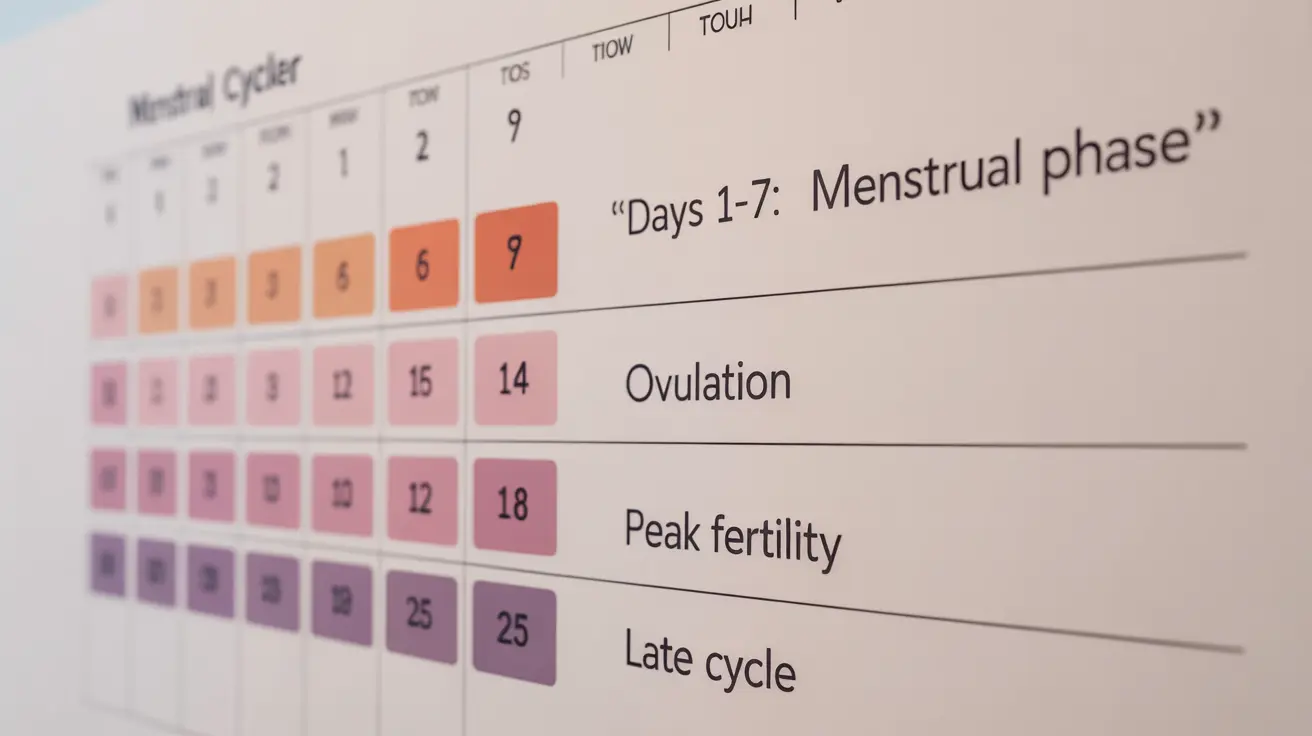Experiencing an early period can be unexpected and concerning for many women. While menstrual cycles naturally vary, understanding why your period might arrive sooner than anticipated is crucial for monitoring your reproductive health. This comprehensive guide explores the meaning behind early periods, their common causes, and when you should seek medical attention.
What Defines an Early Period?
An early period typically refers to menstrual bleeding that begins before your regularly scheduled cycle. While a normal menstrual cycle ranges from 21 to 35 days, any bleeding that occurs significantly earlier than your usual pattern may be considered an early period. It's important to note that occasional variations in cycle length are common and often normal.
Common Causes of Early Periods
Hormonal Changes
Hormonal fluctuations are among the most frequent triggers for early periods. These changes can be caused by various factors:
- Thyroid dysfunction
- Polycystic ovary syndrome (PCOS)
- Hormonal contraception adjustments
- Perimenopause
Lifestyle Factors
Your daily habits and environment can significantly impact your menstrual cycle:
- Significant weight changes
- Excessive exercise
- Poor sleep patterns
- Diet modifications
- Travel across time zones
Stress and Emotional Factors
Psychological stress can have a direct effect on your menstrual cycle by influencing hormone levels and disrupting your body's natural rhythms. Both acute and chronic stress may lead to early periods.
When to Seek Medical Attention
While occasional early periods aren't usually cause for concern, certain situations warrant professional medical evaluation:
- Consistent irregular bleeding patterns
- Heavy bleeding with clots
- Severe cramping or pain
- Bleeding between periods
- Unusual discharge or odor
Tracking and Managing Early Periods
Monitoring Methods
Keeping track of your menstrual cycle can help identify patterns and potential triggers:
- Use period tracking apps
- Maintain a menstrual calendar
- Record associated symptoms
- Note lifestyle changes
Lifestyle Management Strategies
Several practical steps can help regulate your cycle:
- Maintain a consistent sleep schedule
- Practice stress-reduction techniques
- Exercise moderately
- Follow a balanced diet
- Stay hydrated
Frequently Asked Questions
What does it mean if my period comes earlier than expected?
An early period can indicate hormonal changes, stress, or lifestyle modifications affecting your menstrual cycle. While occasional early periods are usually normal, persistent changes should be evaluated by a healthcare provider.
What are the common causes of an early period?
Common causes include hormonal fluctuations, stress, significant lifestyle changes, weight fluctuations, and certain medications. Medical conditions like thyroid disorders or PCOS can also trigger early periods.
When should I be concerned about having an early period and see a doctor?
Consult a healthcare provider if you experience consistent irregular cycles, heavy bleeding, severe pain, or if early periods are accompanied by concerning symptoms like unusual discharge or severe fatigue.
Can stress or lifestyle changes cause my period to come early?
Yes, both stress and lifestyle changes can affect your menstrual cycle. High stress levels, significant changes in diet, exercise routines, or sleep patterns can all potentially trigger early periods.
How can I track and manage irregular early periods at home?
Use period tracking apps or calendars to monitor your cycle, record symptoms, and identify patterns. Maintain healthy lifestyle habits, manage stress levels, and ensure adequate sleep and nutrition to help regulate your cycle.




